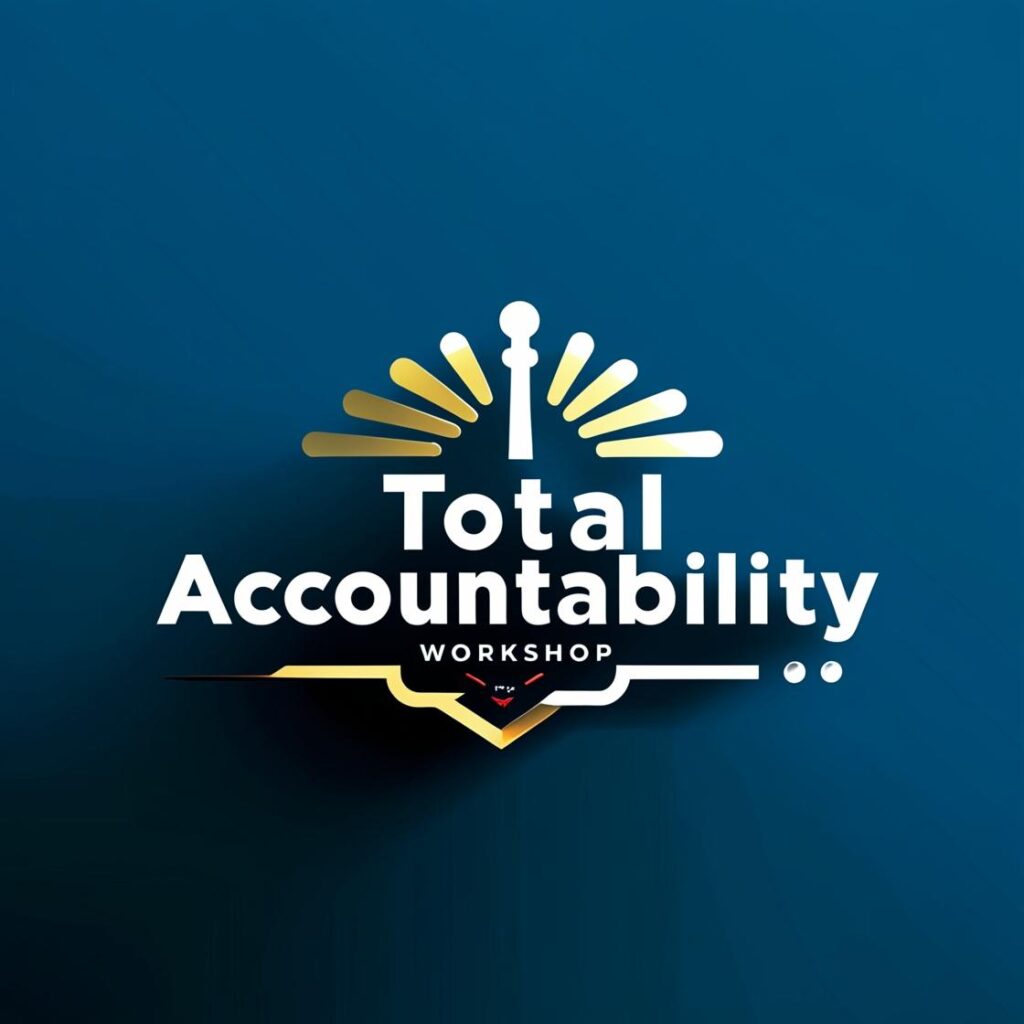Team building activities play a vital role in fostering stronger, more cohesive, and high-performing teams. As a facilitator or manager, your ability to plan and execute these activities can have a significant impact on your team’s success.
Team Building Activities: A Guide for Facilitators and Managers is designed to provide you with the knowledge, strategies, and tools necessary to harness the power of team building and unlock your team’s full potential.
Collaboration and teamwork are more important than ever. Companies rely on diverse teams to generate innovative ideas, solve complex problems, and drive growth. Team building activities are an effective way to enhance communication, build trust, and develop essential teamwork skills, ultimately leading to improved team performance and increased job satisfaction.
Understand the importance of team building activities and their benefits to your organization. Explore the advantages of team building activities compared to traditional training methods, such as seminars, workshops, and coaching. Learn about potential disadvantages and pitfalls to avoid in planning and executing team building exercises.
Furthermore, delve into the critical elements of successful team building activities.
I will share a step-by-step process for choosing the best team building activities for your team, along with practical tips and recommendations.
The guide also includes a glossary of essential team building terminology, providing you with a solid foundation for understanding and implementing effective team building strategies.
Whether you are a seasoned facilitator or a manager seeking to enhance your team’s performance, this guide will serve as a valuable resource for planning and executing impactful team building activities.
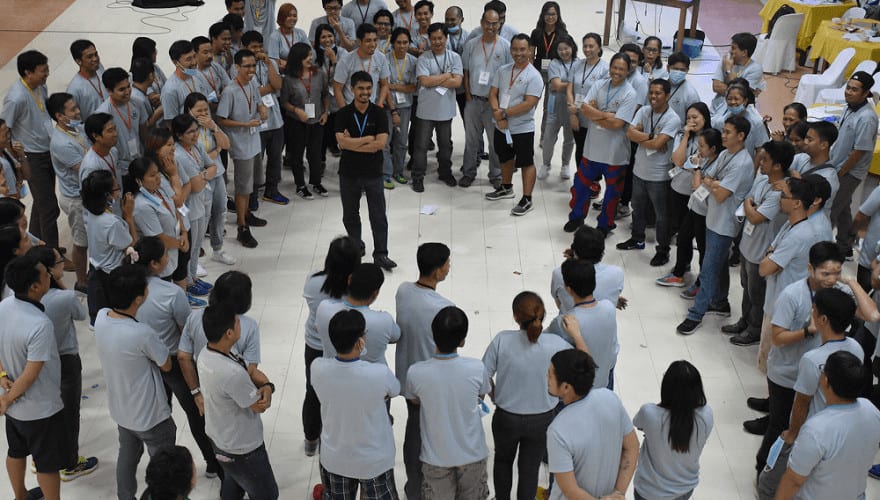
What are team building activities?
Team building activities are structured tasks or exercises designed to enhance team dynamics, improve interpersonal relationships, and promote a cohesive work environment. These activities can range from short, five-minute games before daily meetings to annual outdoor team-building events, depending on the needs and preferences of the team and organization.
Team-building activities can be fun games designed to help a team collaborate to achieve a shared goal and be motivated to perform at their best.
Team building activities may also help develop specific team competencies and teamwork skills.
Importance of Team Building Activities
Team building activities are essential for fostering a sense of unity and camaraderie within a team. They help team members develop a better understanding of each other’s strengths and weaknesses, which in turn can lead to improved cooperation and communication. By investing in team building activities, organizations can create a more positive and supportive work environment, resulting in increased productivity, employee satisfaction, and overall performance.
Benefits to the Organization
- Enhanced productivity: When team members understand their colleagues’ strengths and work styles, they can collaborate more efficiently and effectively, leading to increased productivity.
- Higher employee engagement: Engaging team building activities can boost employee motivation, commitment, and satisfaction, leading to higher retention rates and reduced turnover.
- Better conflict resolution: Team building activities that address communication and interpersonal skills can help teams navigate disagreements and misunderstandings in a healthier and more constructive manner.
- Stronger company culture: Team building activities can help reinforce the organization’s values and vision, fostering a sense of shared purpose and identity among team members.
- Improved decision-making: By developing a culture of trust and open communication, teams can make more informed decisions, reducing the risk of errors and miscommunication.
- Greater adaptability and resilience: Team building activities that focus on problem-solving and adaptability can help teams become more agile and better equipped to handle change and uncertainty.
Types of Team Building Activities
Different types of team-building activities include icebreakers, problem-solving exercises, and team bonding events.
Icebreakers are usually used at the beginning of a team-building session to help team members get to know each other better.
Problem-solving exercises can help teams learn how to work together to solve complex problems.
Team bonding events, such as a company retreat or a team-building day, can help build trust and foster a sense of community among team members.
Build teamwork.
Let team members compete together against standards, not with each other. Simple team-building activities may help you build teamwork.
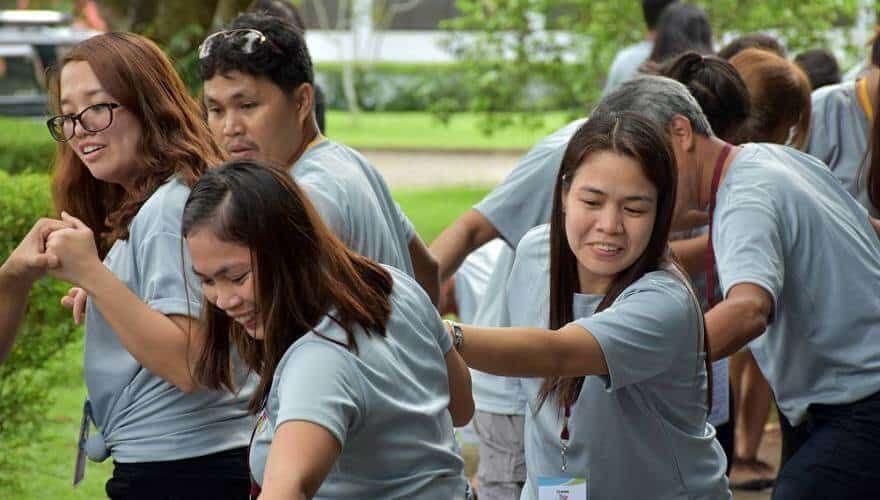
Make Team Building Activities Work
I teach managers how to conduct positive team building. Positive team building improves your team’s effectiveness.
Use games and exercises to help you process problem-solving and learning. The tips that follow are simple, but I promise that when you keep them in mind, you will become more effective.
1. Begin with the end in mind.
To begin with, the end in mind means you think first about your big goals.
Your big goals may include an increase in revenue, improvement in customer service, improvement in productivity, improvement in performance, or being the best in your industry. Team building initiatives serve not only your learning objectives.
I met a company president who said that his objective is Profit First, People First. I heard others say People First, Profit Second. But his objective is clear to me.
Start with a clear endpoint in mind. What specifically do you want your team to learn and accomplish?
Think well. You need to build your team according to your team’s purpose.
Set goals your team can achieve. Aim for change that is both relevant and immediately doable. Think of an attitude, skills, or processes your team can apply after your team-building activities.
Team building experiences are interventions among many interventions that your team must undertake to improve performance.
There are many building blocks to team building and you cannot build them by playing games and participating in various team-building activities.
You don’t build teams in a day.
2. Objectives first, then the exercises.
A team-building objective refers to your desired result if you conduct your team-building initiative right. It is specific and clear. It can be measured. It may include specific behaviors (lead measure) and the impact (lag measure).
Improving team accountability is an aim. But it is not specific. It does not also say what impact you want to see when people have team accountability.
Therefore, avoid motherhood statements when writing objectives.
Many facilitators tweak their favorite games to customize their team-building workshops. While I admit that this can really be done by experts, you will be more effective by keeping your eyes on your objectives.
Find exercises that match your objectives.
Search for guidebooks and field books on team building. Search for team building games on Youtube and websites. Pick the activities that will achieve your objectives.
Combine some activities to meet your objectives. Proper sequencing of the activities will also help your team make sense of all the activities.
When your purpose is compelling and clear, you will also find it easy to “create” your own games and activities.
Many of the games that I have used are “improved versions” of what I found in many team-building books.
Sometimes, popular games produce the worst team-building exercises. Flip them over to serve your objectives.
3. Focus on teamwork, not just competition.
Most team games do not build teams because the purpose of team games is to find the strongest. Team sports are team games. One must one, and all the other teams must lose. Yes, we expect the winning teams to have teamwork.
But sometimes, they can win without teamwork. Tug o war, sack races, amazing races, and obstacle courses are examples of team games. The strongest are likely to win. And the weak ones are losers.
Team building games, on the other hand, are a teaching tool. You make people play team-building games to learn about collaboration, cooperation, open and honest communication, and participative leadership. The objectives are win-win and learning.
Do you see the importance of picking simple, but effective team-building games to build teamwork?
Compete against a challenge, not against each other. Your employees belong to only one team even if you have many departments.
Competition can be a good thing. It can excite, energize, and challenge people when the team has a common enemy. However, do not assume that competition is best for everyone. It can deflate and discourage.
Competition can defeat the purpose of your team-building workshop. You do not want an intramural.
Many dysfunctional teams have trust issues. They tend to complain about “cheating” and “dishonesty” of other teams.
Unfortunately, many team-building exercises are run like college intramural.
To ensure that you have a healthy dose of competition, choose team-building activities that will not make them compete against each other.
Let them compete against the clock.
Let them hurdle difficult challenges and let them realize that they can learn from each other.
Let them feel the need for each other; let them realize that all of them can win by working together.
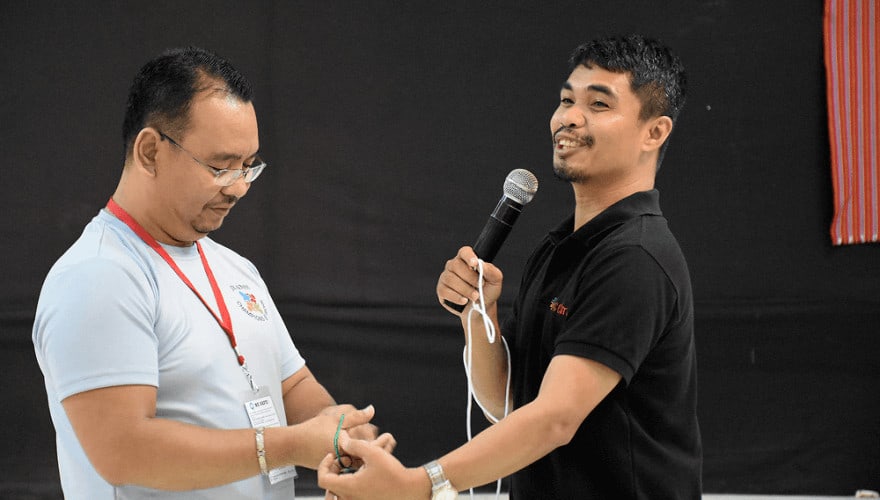
How We Use Team Building Activities
We use team-building activities to help us solve team problems. Team-building games and exercises do not build teams.
But when we effectively use them, we create shared experiences to jumpstart discussion on issues and to collaboratively find solutions.
Effective team games may stimulate creativity. The shared experiences make it easy for members to open up and speak.
Money, time, and energy are wasted on team-building activities that do not serve a purpose. Some expensive team games provide the worst experiences to many underachieving teams.
I have encountered managers who, after purchasing team-building activities, contacted me to help them put meaning and inspiration into each purchased package.
What was the common problem of these managers?
They failed to identify the objectives of their team-building efforts. They are like headless chickens who wanted to keep on moving, and they were moving everywhere but went nowhere.
Make no mistake. I am not putting down anyone. I know that it is difficult to lead a team. Many KPIs do not include effective team leadership too. It is easy to ignore building a team when you have to pay more attention to figures than people.

Implementing Team Building Activities
Implementing team-building activities in the workplace can be a great way to foster teamwork, improve communication, and increase productivity.
However, you must approach these activities with a well-planned and strategic approach.
I will share the best practices for implementing activities in the workplace.
Planning and Execution
If you fail to plan, you plan to fail.
Many team-building initiatives fail because managers ignore planning and execution.
It is common for me to be contacted by a new employee tasked to look for team-building packages. Unfortunately, they cannot tell me the objectives of their team building.
And because they don’t want to inconvenience their bosses with my questions, they look for other facilitators who are too willing to provide packages.
So, if you are a manager who wants better results, here are quick suggestions.
Define Your Goals: Before planning any team-building activities, define your goals.
What specific outcomes are you hoping to achieve through these activities?
This could include improving communication, building trust, or increasing productivity.
Align Activities with Goals and Values: Choose activities that align with your team’s goals and values.
For example, if your team values creativity, consider planning an activity that involves brainstorming, innovation, or problem-solving exercises.
Encourage Participation: Make sure to encourage participation from all team members. Choose activities that appeal to a variety of personality types or schedule activities at a convenient time for everyone.
Plan for Logistics: Plan the logistics of the activities in advance. This includes selecting a location, scheduling the activity, and arranging transportation if necessary.
Budget and Scheduling
This may sound funny to some, but some of those who contacted me don’t know how much they need to spend on team building.
I was once contacted by someone who wanted me to facilitate team building for 180 people. His budget was 5000 pesos.
There are occasions when the persons inquiring demand a lot. I get to spend hours consulting with them, only to discover later that I am talking to someone who has yet to learn about the budget and schedule.
So, here are quick tips for team leaders.
Create a Budget: Determine how much you will spend on team-building activities and create a budget. This could include expenses such as venue rental, equipment, and facilitator fees.
Consider Timing: Choose a time that works for everyone on the team, and consider scheduling activities during work hours to minimize disruption to their schedules.
Plan Ahead: Plan team-building activities well and communicate the details to team members in advance.
This will give them time to prepare and ensure they can attend.
Implementing activities can be a great way to foster teamwork and improve productivity.
By approaching these activities with a well-planned and strategic approach, you can ensure that they align with your team’s goals and values, and create a positive and engaging environment for all team members.
Assess the Effectiveness of Team Activities
Assessing the effectiveness of team building activities is crucial to ensure they achieve their intended goals and improve team dynamics.
Here are some ways to assess the effectiveness of your activities:
Surveys and feedback forms: Distribute surveys or feedback forms to participants. You can ask participants to rate the activities on various parameters such as enjoyment, relevance to their work, and impact on team dynamics.
Observations and feedback from facilitators: Facilitators can provide valuable insights into their effectiveness. They can observe how team members interact with each other, identify areas where there is room for improvement, and provide feedback on what worked well and what didn’t.
Performance metrics: Team building activities should ultimately lead to improved performance metrics such as increased productivity, higher employee engagement, and better collaboration. Tracking these metrics before and after team building activities can help determine their effectiveness.
Follow-up sessions: Follow-up sessions with team members after the activities can help assess their effectiveness. These sessions allow team members to discuss what they learned, how they have applied it to their work, and what changes they have noticed in team dynamics.
Comparison with previous team-building activities: If your organization has conducted team-building activities in the past, it may be helpful to compare the effectiveness of the current activities with those of the past.
Comparison can help identify trends and areas for improvement.
Assessing the effectiveness of team building activities is critical to ensure they achieve their intended goals and improve team dynamics.
By combining these methods, organizations can gather valuable feedback and insights to improve the effectiveness of their team-building activities.
Team building activities do not have to be tiring, painful, and expensive. You can run simple team-building activities that improve team competencies and drive results. You can pick team-building activities that will require collaboration to achieve team goals.
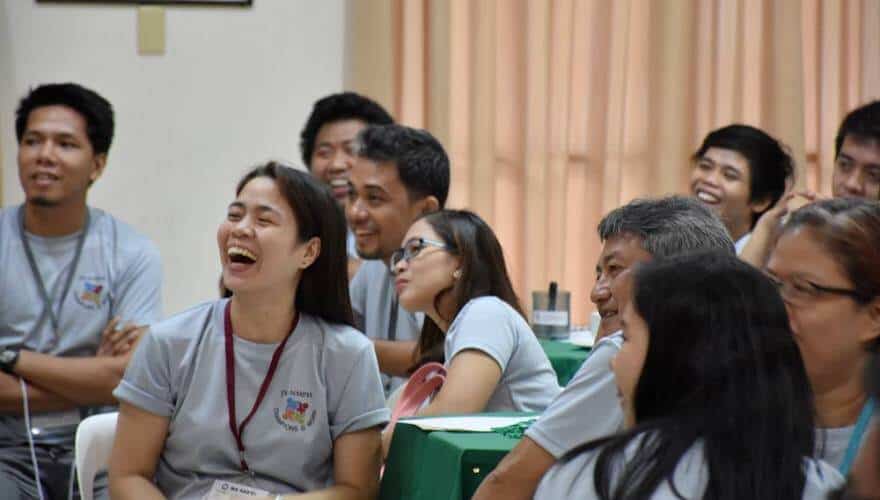
Quick Team Building Activities
Team building activities are essential for fostering collaboration, improving communication, and boosting morale among team members. These short, engaging activities can be easily incorporated into meetings and require minimal props, making them perfect for busy schedules.
Each activity is designed to take just 15 minutes, providing a quick yet effective way to bring your team closer together.
Here are 15 creative team-building activities for you to choose from:
1. Paper Tower Challenge
This fun and creative activity involves building the tallest tower possible using only paper and tape. It encourages teamwork and innovative thinking.
Divide the group into smaller teams of 3-5 members each. Provide each team with a stack of paper and a roll of tape. Set a timer for 15 minutes and challenge the teams to construct the tallest freestanding tower they can. Once time is up, measure each tower and declare the tallest one the winner. Discuss the different strategies used and what worked well.
Target Competencies: Collaboration, creativity, problem-solving.
2. Human Knot
The Human Knot is an engaging activity that requires physical interaction and problem-solving. Team members must work together to untangle themselves from a human knot without letting go of each other’s hands.
Have everyone stand in a circle, shoulder to shoulder. Instruct each person to reach out with their right hand and grab the hand of someone across the circle. Then, do the same with the left hand, ensuring they grab a different person’s hand. The team must now untangle themselves without letting go of hands. This activity requires communication and teamwork as they strategize and maneuver to untangle the knot.
Target Competencies: Teamwork, communication, problem-solving.
3. Show and Tell
Show and Tell provides a platform for team members to share personal stories and items that are meaningful to them, fostering a deeper connection.
Ask each team member to bring an item to the meeting that has personal significance. One by one, each person presents their item to the group and shares the story behind it. This could be anything from a souvenir to a photo or a favorite book. Encourage questions and discussion after each presentation to deepen the engagement.
Target Competencies: Communication, storytelling, getting to know each other.
4. Speed Networking
Speed Networking is a fast-paced activity designed to help team members get to know each other quickly and effectively.
Pair up team members and give them two minutes to introduce themselves and share something interesting. After two minutes, signal for everyone to switch partners. Continue the process until everyone has had a chance to meet. This activity breaks down barriers and promotes a sense of camaraderie within the team.
Target Competencies: Networking, communication, ice-breaking.
5. Picture Perfect
This activity involves one team member describing a picture while their partner attempts to draw it based solely on the description, enhancing listening and interpretation skills.
Divide the team into pairs. Provide one person in each pair with a simple image. Without showing the image, they must describe it in detail to their partner, who will try to draw it based on the description alone. After 10 minutes, compare the drawings to the original images and discuss the differences and challenges faced.
Target Competencies: Communication, listening, interpretation.
6. Word Association
Word Association is a quick and fun game where team members rapidly say words that come to mind, promoting creativity and quick thinking.
Start with a random word and have each team member quickly say the first word that comes to mind when they hear the previous word. The chain continues around the circle without pauses. For example, if the starting word is “apple,” the next person might say “fruit,” followed by “banana,” and so on. This activity helps to stimulate thinking and is a great icebreaker.
Target Competencies: Quick thinking, creativity, communication.
7. Desert Island Scenario
In this imaginative activity, team members must decide on essential items to bring to a deserted island, promoting problem-solving and decision-making skills.
Present a scenario where the team is stranded on a deserted island and can only bring five items. Allow the team 10 minutes to discuss and agree on which items to bring. Encourage them to consider survival needs and how each item can be useful. After the discussion, have them present their choices and rationale to the group.
Target Competencies: Problem-solving, decision-making, collaboration.
8. Pass the Story
Pass the Story is a collaborative storytelling activity where each person adds a sentence to an ongoing story, fostering creativity and teamwork.
Start with a simple sentence to begin a story. Each team member then adds one sentence to continue the story. The objective is to create a coherent and engaging story collectively. After everyone has contributed, read the final story aloud and enjoy the creative journey.
Target Competencies: Creativity, communication, collaboration.
9. Marshmallow Challenge
This challenge involves building the tallest structure using spaghetti, tape, string, and a marshmallow, emphasizing creativity and teamwork.
Divide the team into groups of 3-5 members. Provide each team with 20 sticks of spaghetti, one yard of tape, one yard of string, and one marshmallow. They have 15 minutes to build the tallest freestanding structure with the marshmallow on top. Discuss the different approaches and what each team learned from the experience.
Target Competencies: Creativity, teamwork, problem-solving.
10. Personal Map
Personal Map allows team members to share aspects of their lives and interests through drawings, enhancing self-awareness and communication.
Provide each team member with paper and markers. Ask them to draw a map that represents their interests, hobbies, significant life events, and any other personal highlights. After 10 minutes, have each person present their map to the group, explaining the different elements and their significance. This activity helps team members understand each other on a deeper level.
Target Competencies: Self-awareness, communication, getting to know each other.
11. What’s on Your Desk?
In this activity, team members share items from their desks or workspaces, providing insights into their personalities and work habits.
Each person selects three items from their desk and shares them with the group, explaining why each item is important or meaningful. This can include anything from personal mementos to work tools. Encourage questions and discussion after each presentation to foster a deeper understanding of each other.
Target Competencies: Communication, getting to know each other, ice-breaking.
12. Blind Drawing
One person describes a picture, and the other person draws it blindfolded, enhancing communication and listening skills.
Pair up team members and give one person in each pair a simple image to describe. The other person puts on a blindfold and tries to draw the image based on the description alone. After 10 minutes, compare the drawings to the original images and discuss the challenges and how communication could be improved.
Target Competencies: Communication, listening, teamwork.
13. Memory Wall
Team members write down positive memories they have shared with the team, fostering bonding and positive reinforcement.
Provide sticky notes and pens to each team member. Ask everyone to write down a positive memory related to the team or a specific team member and stick it on a designated wall or board. After 10 minutes, gather around the wall and read the memories aloud. This activity creates a positive atmosphere and reinforces team bonding.
Target Competencies: Team bonding, positive reinforcement, communication.
These activities are designed to be simple, quick, and effective in fostering team spirit and improving communication among team members. Choose the ones that best fit your team’s needs and enjoy the benefits of a more connected and collaborative team.
Resources
I want you to succeed. Everything that you have learned here will help you choose the best team building activities for your group.
So, I am providing you more resources.
More Team Building Activities
Team Building Articles
No posts

